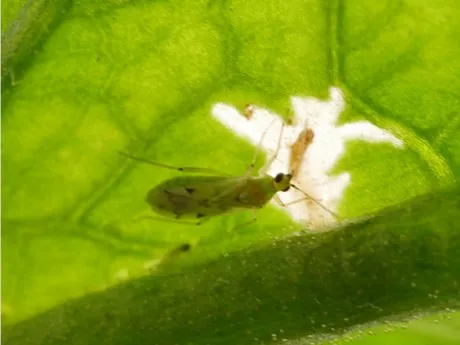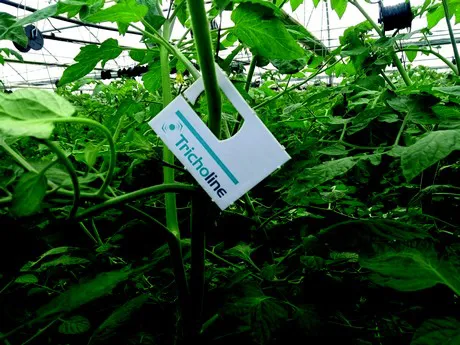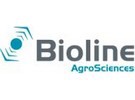Dr Caroline Reid of Bioline Agrosciences has made a conference for 200 members of the Tomato industry at the TGA Tomato conference 2019 at Chesford Grange Hotel on 26th of September.
Tuta absoluta is a huge pest for tomatoes. Serious damages occur throughout the entire growing period (protected and open-field crops). Tuta absoluta prefers tomato, but they also cause damages on aubergines, beans, tobacco and potatoes. Without intervention it can cause 80-90% crop loss.
Tuta absoluta is a very challenging pest to keep under control as the effectiveness of chemical control is limited due to nature of damage. It is known to rapidly develop resistant strains against insecticides.
Bioline Agrosciences, a major player in Trichogramma production, produce a specific product for the control of Tuta absoluta which is currently unavailable in the UK. As Tuta is now resistant to chlorantraniliprole in Southern Mediterranean countries and become immune to the pheromone this bio-control offers a new line of defense.

Origin and cycle of Tuta Absoluta
Tuta Absoluta comes from South America and was detected for the first time in Spain in 2006. It spread rapidly throughout the countries of the Mediterranean as well as other European countries (UK, Netherlands, Germany, Switzerland, …).
Tuta absoluta lifecycle includes 4 stages: egg – 4 larval stages, 1 stage chrysalis (or cocoon) and 1 adult stage. Adults are moths of 5 to 7 mm long. They are crepuscular, hiding during the day, with activity higher at the end of the day and at sunrise, and affecting mainly the bottom of the plants. Males and females mate and egg laying begins after 3-4 days. Eggs are often isolated, on the leaves and also on young fruits. In practice, eggs are not easily observable in crops.
Damages of Tuta absoluta
The damage is caused by the larva tunneling mines in the leaves, stems, buds, but also in the fruits. The larvae are mobile and can leave their gallery (mine) to dig others, which increases the number of galleries on the leaves. On fruits, a single larva can infest many fruits on the same cluster. In the case of a variety harvested in a cluster, the damage observed can have a strong economic impact. Fruits bearing eggs of Tuta absoluta at harvest may be damaged in the days that follow.
How to contain Tuta absoluta
Given the high capacity of spread of the pest, the succession of generations (especially under shelter) and the known resistance to several active substances, the method of protection consists in using a combination of all methods.
Bioline Agrosciences produces Trichogramma achaeae which is a parasitoid of the eggs of Tuta absoluta. Trichogramma lays an egg in the egg of the tuta. The larva hatches and consumes the content of the pest egg, grows, and produces a blackish cocoon, metamorphosing into a nymph. An adult then emerges, which goes out to find other eggs.

Why is Trichogramma achaeae a necessity against Tuta absoluta?
Trichogramma achaeae is efficient to control the pest. This is particularly important for the revenue of the grower considering the economic losses that are due to the pest.
Trichogramma achaeae is used in many countries in Europe to fight Tuta absoluta with a high rate of success, making less stress for growers all during the crop season. Tricholine TA is available in Bioline Agrosciences’ range in dispensers to hang on the stems of plants for a very fast and easy application.
Tricholine TA is not registered in all countries - for local country registration please contact your local Bioline rep or country registration department.
For more information Bioline Agrosciences
Bioline Agrosciences
Dr Caroline Reid
+ 44 7787 557 683
creid@biolineagrosciences.com
www.biolineagrosciences.com
